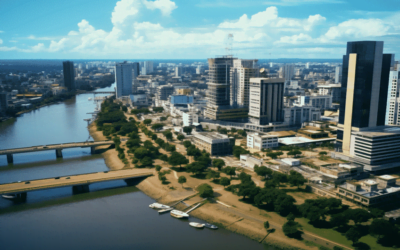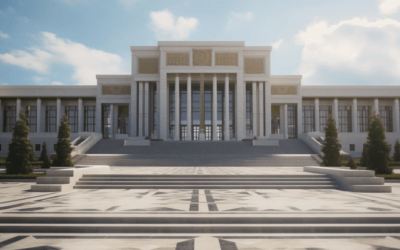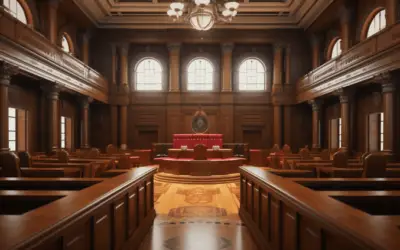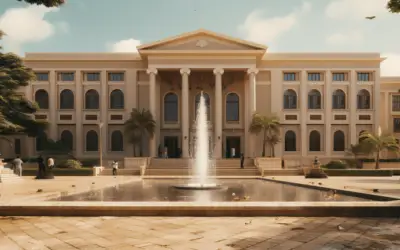You know what it’s like when you’re about to embark on a new drone adventure, and you’ve got that one nagging question on your mind: What are the South Africa drone laws, and how will they affect my flights? I’ve been there, too, and the search for answers can be both exciting and daunting. So, let’s dive into this together and untangle the web of South Africa’s drone regulations.
After some extensive research, I’ve got some good news for you. I’ve spent countless hours digging through the intricacies of South Africa’s drone laws, and I’ve got all the insights you need. Whether you’re a hobbyist or planning a commercial operation, I’m here to provide you with the lowdown on the regulations and the essential know-how to navigate the skies safely and legally. I’ve walked the same path, and now I’m here to share the knowledge I’ve gained along the way.
So, if you’re ready to find answers to your drone law questions and want to ensure your flights comply with South Africa’s regulations, you’re in the right place. This article is your key to understanding the drone laws that govern our skies. Read on, and together, we’ll explore the world of South Africa drone laws, demystify the regulations, and ensure you have the tools and knowledge you need to soar confidently in the open skies of this beautiful country. Let’s get started on this drone adventure!
General Rules for Flying a Drone in South Africa

You won’t find a more picturesque place for drone flights than South Africa, but the open skies come with their own set of rules. Let’s explore the general guidelines to help you navigate your drone journeys in this breathtaking country.
Proximity to Airports
Picture this: You’re all set to launch your drone into the open sky, capturing stunning vistas, when you suddenly realize you’re within 10 kilometers of an airport. It’s a situation that might make any drone enthusiast’s heart skip a beat.
Well, in South Africa, there’s a straightforward rule in place – when you’re within that 10-kilometer radius of an airport, you’ll need special permission from the South African Civil Aviation Authority (SACAA). It’s not just a rule; it’s a safety measure to keep the skies clear and safe for everyone.
Commercial vs. Personal Use
Now, here’s the deal: if you’re flying your drone purely for personal enjoyment, you’re generally in the clear. No need for complicated paperwork or licenses. It’s all about capturing those personal moments and the stunning landscapes of South Africa.
But, as soon as there’s any commercial interest or gain involved with the footage you’re capturing, that’s when the rules shift. The SACAA steps in, and you’ll need to operate under Part 101 of their regulations.
What does that mean exactly? Well, if you’re planning to make a business out of your drone skills, you’ll need to get yourself registered and follow the specific regulations set for commercial drone operations.
It’s a bit more paperwork, but it’s a necessary step to ensure the safety and accountability of your drone flights. Your drone, your skills, and the beautiful South African landscapes can become part of your business, but it comes with its own set of rules and responsibilities.
Weight Limit
When it comes to drones in South Africa, they’re not all created equal. That’s why there’s a weight limit in place, and it’s an important rule to understand. Drones weighing more than 7 kilograms, which is about 15.4 pounds, are in a different category.
They’re not off-limits, but they come with additional requirements. It’s not just a matter of “the heavier, the better.” These added regulations are designed to address safety concerns, especially when you’re dealing with potentially more powerful drones.
Proximity to People and Property
Imagine soaring through the skies with your drone, capturing breathtaking views, and then suddenly realizing you’re too close to people or someone’s private property. In South Africa, there’s a rule that states drones may not be flown within 50 meters, or about 164 feet, of people or private property without permission from the property owner.
It’s all about respecting people’s privacy and property rights. So, while those aerial shots are tempting, it’s crucial to keep your distance and maintain respect for others.
Visual Line of Sight
Keeping an eye on your drone isn’t just a good practice; it’s a rule in South Africa. Drone pilots must maintain a visual line of contact with their drones at all times during flight. It might sound like a straightforward rule, but it’s essential for safety.
Whether you’re flying your drone for fun or work, ensuring you can see it clearly helps you avoid potential collisions with other aircraft or unexpected obstacles.
Daylight Flying
The South African skies are undeniably beautiful, but they’re best explored during daylight hours when visibility is at its prime. Drones may only be flown during daylight, which ensures clear sight and safety for everyone involved.
While the allure of twilight or night flights can be strong, adhering to this rule ensures safer operations and better visibility for both pilots and observers.
National Parks
South Africa is home to some of the world’s most incredible national parks, teeming with wildlife and natural wonders. However, it’s essential to note that the use of drones inside and over these national parks is strictly prohibited.
It’s a rule that’s in place to protect the wildlife and preserve the natural environment. While it might be tempting to capture those lions from above, respecting this rule is vital to safeguard these remarkable natural spaces.
Summary of General Rules and Their Significance
In summary, understanding and following South Africa’s drone laws is not just about rules and regulations. It’s about ensuring safety, protecting privacy, and respecting the natural world.
Whether you’re a hobbyist capturing the beauty of South Africa for your personal enjoyment or a commercial operator incorporating drones into your business, these rules are in place to make the skies safe and beautiful for everyone. So, as you venture into the South African skies, remember that it’s not just about flying; it’s about flying responsibly.
Also Read: Somalia Drone Laws 2024
Drone Laws for Different Categories of Operators

So, you’re thinking about exploring South Africa with your drone, and you’re curious about the regulations that apply to your specific category of drone operation. Let’s take a closer look at the drone laws for residents, commercial operators, and even those who are just visiting this captivating country.
Hobbyist Drone Laws for Residents
If you’re a resident with a passion for flying drones purely for personal enjoyment, South Africa has some allowances for you. You’re in the clear for your hobbyist drone flights. No need for complex licenses or registrations.
It’s all about capturing those personal moments and the stunning landscapes that South Africa has to offer. But remember, even in this category, there are some important considerations.
Licensing requirements for hobbyists are generally minimal. However, it’s a good idea to educate yourself on basic drone operation, safety, and local regulations. This will not only make your flights safer but also ensure that you’re responsible in your aerial adventures.
Drone registration is required, so make sure to complete this step before taking to the skies. While Drone Remote ID and insurance are not obligatory, I’d strongly recommend them, especially for the added peace of mind and security they provide. It’s always better to be prepared.
Commercial Drone Laws for Residents
Now, if you’re thinking of taking your drone skills to the next level and turning it into a business, there’s a different set of rules to follow. When it comes to commercial drone operations, South Africa has specific regulations in place. It’s about maintaining safety, accountability, and professionalism in the sky.
For commercial drone operators, licensing and certification are requirements. You’ll need to get yourself registered and follow the specific regulations set for commercial drone operations. It might seem like extra paperwork, but it’s a crucial step to ensure that your flights meet the required standards and adhere to safety guidelines.
When it comes to drone registration, it’s a necessity. It ensures that your drone operations are tracked and accountable. While Drone Remote ID and insurance aren’t mandated by law, they are recommended for commercial drone operations. They provide an added layer of security and protection for your business and the people you serve.
Drone Regulations for Visitors to South Africa
Now, if you’re not a South African resident but are excited to explore the South African skies, there are still some rules you’ll need to be aware of. Foreign visitors are allowed to fly drones in South Africa, which opens up exciting possibilities for capturing this beautiful land from above.
As a visitor, you’ll need a drone pilot license. This requirement ensures that you understand the local regulations and can operate your drone safely in South Africa. You’ll also need to register your drone. While Drone Remote ID is not mandatory, it is highly recommended to enhance safety and accountability during your flights. Similarly, insurance is not a legal requirement, but I would strongly advise it, especially when you’re exploring a new land and its unique challenges.
Remember, whether you’re a resident, a commercial operator, or a visitor, understanding and adhering to these rules is essential. It’s about ensuring that your flights are not only breathtaking but also safe, responsible, and in harmony with the South African skies.
Also Read: Solomon Islands Drone Laws 2024
Consequences of Violating Drone Laws

Now, it’s time to discuss the consequences of not playing by the rules when it comes to drone operations in South Africa. You might be tempted to push the boundaries or take a shortcut, but there are very real repercussions you need to be aware of.
Penalties for Violating Drone Regulations
Let’s get right to it. If you’re caught violating South Africa’s drone laws, you can expect some penalties.
The severity of the penalty may vary depending on the nature and extent of the violation. It could range from warnings and fines to more serious legal actions.
The key here is to understand that these penalties are not just there to dampen your enthusiasm but to ensure the safety and security of the South African airspace.
Legal Consequences, Fines, and Potential Legal Actions
When you’re in violation of drone laws, it’s not just about paying a fine and moving on. There can be legal consequences involved, and they can become quite significant.
Imagine having to deal with legal proceedings and potential fines that could dent your pocketbook.
It’s not the kind of adventure you’d want, and it could seriously hamper your passion for drones.
The bottom line is that it’s much easier to comply with the rules from the get-go rather than deal with legal issues down the line.
Importance of Compliance with Drone Laws
Compliance with drone laws isn’t just a matter of avoiding penalties or legal trouble. It’s about being a responsible and ethical drone operator.
These laws are in place to ensure the safety of all those who share the skies with you. By adhering to the rules, you’re not only protecting your own interests but also the well-being of others and the reputation of the drone community as a whole.
So, whether you’re a newcomer or a seasoned drone enthusiast, remember that following these laws isn’t a limitation; it’s a responsibility.
Also Read: Sao Tome and Principe Drone Laws 2024
Resources for Drone Operators in South Africa

As a drone enthusiast, you’re not alone in your quest to navigate the world of South Africa’s drone laws and regulations. There are valuable resources available to help you stay informed and updated.
Official Sources for Up-to-Date Regulations
When you’re looking for the latest drone regulations in South Africa, you don’t need to search far and wide.
The official sources are your go-to places for the most up-to-date information. Websites provided by the South African Civil Aviation Authority (SACAA) and other relevant government agencies are your best friends.
They’re constantly updated to reflect the current laws and guidelines, ensuring that you’re well-informed.
South African Civil Aviation Authority (SACAA)
The SACAA plays a pivotal role in regulating drone operations in South Africa. They’re the authority that oversees and enforces these laws.
If you’re serious about drone operations, it’s a good idea to acquaint yourself with the SACAA.
Understanding their role and the regulations they put forth will not only help you stay compliant but also foster a sense of responsibility in the skies.
Where to Find Information on Registration and Licensing
When you’re dealing with the bureaucratic side of drone operation, it’s essential to know where to go for registration and licensing. The official government websites can guide you through these processes. They’ll provide the necessary forms, instructions, and contact details to make sure you’re on the right track.
Role of Industry Associations and Communities
Sometimes, learning from fellow enthusiasts and experts can be incredibly valuable. South Africa has its own drone industry associations and communities.
These forums, groups, and organizations are excellent places to seek advice, share experiences, and connect with like-minded individuals.
It’s not just about the regulations; it’s also about being part of a supportive and knowledgeable community.
Importance of Staying Informed and Updated
The drone world is dynamic, with regulations and technologies constantly evolving. So, it’s crucial to stay informed and updated.
Make it a habit to check official sources regularly, engage with industry associations, and keep learning about the latest trends and best practices.
This proactive approach will not only enhance your skills but also ensure that you’re always flying responsibly and within the bounds of South Africa’s drone laws.
Also Read: Senegal Drone Laws 2024
Final Thoughts on South Africa Drone Laws
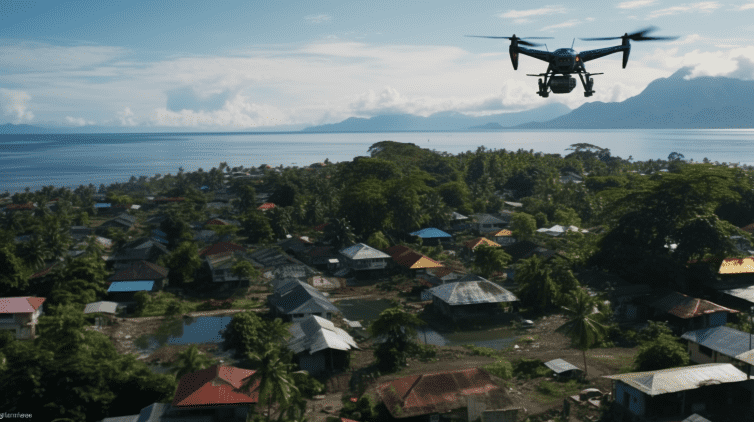
As we wrap up our journey through the intricate landscape of South Africa’s drone laws, let’s take a moment to reflect on what we’ve learned.
We’ve delved into the essential rules that govern the South African skies. From the proximity to airports to the distinctions between personal and commercial drone use, we’ve covered the ground rules that ensure safety and accountability in this breathtaking country. Remember, it’s not just about flying; it’s about flying responsibly and in harmony with the South African skies.
Drone technology has brought the world closer to us from above, and it’s an exciting time to be part of this ever-evolving community.
But with great technology comes great responsibility. South Africa’s drone laws are designed not to limit your exploration but to ensure the safety and security of everyone who shares the skies with you.
Responsible drone operation is not just a choice; it’s a duty we all share as enthusiasts.
As I’ve said before, compliance with these regulations is not a limitation; it’s a responsibility. I encourage all drone operators, whether residents, commercial enthusiasts, or visitors, to comply with these laws and prioritize safety in your flights.
It’s not just about avoiding penalties; it’s about creating a harmonious and secure environment for everyone in the skies.
South Africa’s drone technology is poised for remarkable growth, with the potential to impact various industries, from agriculture to cinematography.
By adhering to these laws, we ensure that this growth is sustainable and beneficial for all. So, as we look to the future of drones in South Africa, let’s embrace this technology responsibly, making the most of its potential while respecting the skies we share.
With that, I bid you happy and safe flying in the beautiful South African skies.
May your drone adventures be both exhilarating and responsible, as we continue to explore the world from above.
Frequently Asked Questions on South Africa Drone Laws
1. Can I fly my drone near an airport in South Africa without permission?
No, drones may not be flown within 10 kilometers (6 miles) of an airport without special permission from the South African Civil Aviation Authority (SACAA). This rule is in place to ensure safety in the airspace.
2. Do I need a license to fly a drone for personal use in South Africa?
If you’re flying a drone solely for personal use, you generally don’t need a license. However, you must still register your drone. It’s essential to distinguish between personal and commercial use.
3. What are the licensing requirements for commercial drone operations in South Africa?
Commercial drone operators in South Africa must obtain a license and follow specific regulations under Part 101 of the SACAA regulations. This ensures safety and professionalism in commercial drone operations.
4. Can foreign visitors fly drones in South Africa?
Yes, foreign visitors are allowed to fly drones in South Africa, but they must obtain a drone pilot license and register their drone. These rules apply to ensure that visitors understand and adhere to local regulations.
5. Are drones allowed in South African national parks?
No, the use of drones inside and over South African national parks is strictly prohibited. This rule is in place to protect wildlife and preserve the natural environment in these areas.








